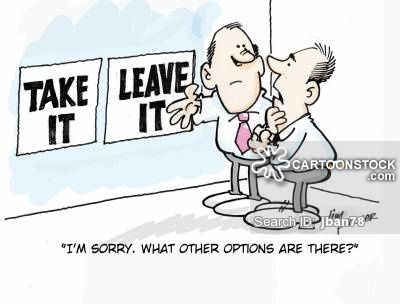All of our decisions, both personal and business related, are influenced by issues of support versus tough love. When it comes to small business, I prefer an approach that ensures adequate understanding and support in order to help someone develop the confidence and skills required to make sound decisions. This approach can also facilitate tough love strategies (when needed) that require analysis, reality, and challenge. Choosing the timing and nature of the combination can be made effective.
Training, mentoring, teamwork, and confidence are critical for effective decision-making. Nevertheless, tough love in the form of technical information, probability, and risk are necessary to validate the decision process. In other words, you must develop methods of support to realistically assess the tough love components of decision-making.
Here are some suggestions to achieve that balance:
- Start with understanding the culture and participants. For example, I tend to be left brain and more technical. Others are more right brain and supportive. You need both. Yet, many people are too proud and reject help. It’s easy to be so convinced of what you’re saying that you end up ignoring how your listeners will receive your words. For example, if you take into account who your audience is, you can cater how you present your information in order to be more effective. This is especially important when dealing with technical information and strong opinions.
- Age, status, education, and reputation of the listener and communicator can all dramatically affect perceptions. We frequently underestimate the importance of the perceptions of analytical information in communicating arguments among different groups. For example, our treatment of minority groups like Asians and Native Americans is frequently not considered. If you don’t understand where your audience is coming from, you’re probably not going to be able to help them or communicate effectively with them.
- Improve Decision Making. We like simple and easy solutions. People with great intentions can sometimes lack understanding. Simple, clear, and actionable efforts can resolve this. A simple suggestion: annual analysis is much simpler to understand and analyze unless you need the monthly changes.

- Communication also needs a “WIN-WIN” mindset instead of a competitive environment. We know positive feedback is received more favorably and, yet, how often do we see (or even participate in) criticism, blame, and one-upping when we find ourselves in pressure situations? Can you find ways to compromise and look for solutions that benefit all instead of just one? For example, following the 80-20 rule and focusing on the best opportunities is one of the most productive efforts to be supportive and address tough love issues.
- Tom Peters’ book, Management by Walking Around, is the best management tool for mitigating the support versus tough love dilemma. It encourages a relaxed atmosphere where one can understand the context of an issue or the background of an individual. A corollary of that tool is maintaining informality, which is important in the pandemic environment. Informal meetings with customers and colleagues as well as informal lunches or social events can be highly beneficial. One of the simplest and best tools to develop support is to simply say please, thank you, and ask, “How are you?”
- Environmental issues can be the most ignored factor in creating a culture. Hierarchical structures, formal office settings, and even dress code can affect problem solving. We need to understand and adjust to new rules of communication and collaboration. The pandemic has forced us to adapt in a plethora of ways: work from home, social gatherings, video meetings, etc. And there will continue to be change as the “new normal” becomes more defined. It’s important to keep working to understand the environment and how it affects you and your employees, coworkers, and customers. Furthermore, what type of environment can you create to support your small business?
- Organizations and individuals with more open communication are more effective. Practices like “need to know” are simply obsolete. The more people know, the more effective they can be in their work. When everyone is on the same page, more gets done efficiently.

We cannot ignore facts, analysis, and challenges when making decisions. It’s critical to remember that they’re most effective when used to support, improve, and understand decisions rather than simply challenge them. Tools like exploring alternatives, listening to experts, writing things down, and informal communication can frequently improve the process. We also need to consider the accuracy and validity of the information, the risk involved in various decisions, and personal preferences. Like so much in life, it’s about finding the right balance and it won’t be the same for everyone. So, take some time to consider: Where can I afford to be more supportive and where do I need to administer some tough love?

